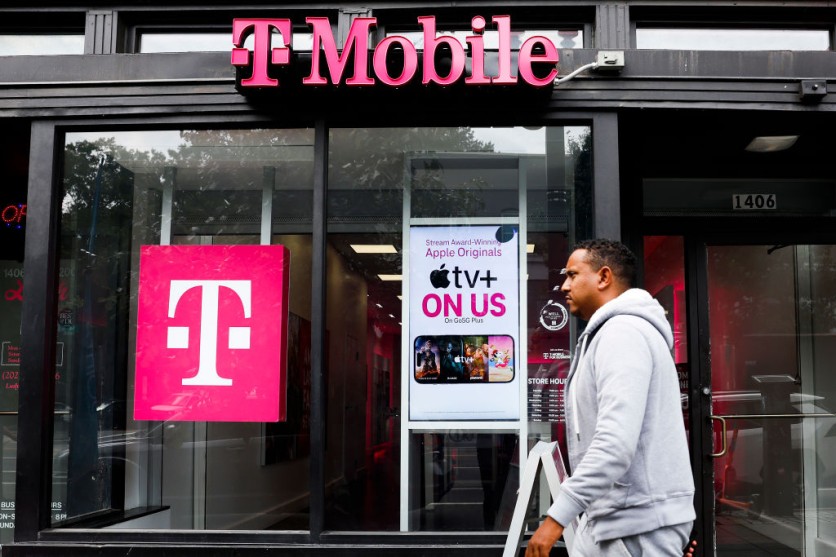
Wireless speeds across varied carriers over the past year show some incredible waves in the telecommunications ecosystem. Despite being well-known as the top dog when it comes to trust and value, reigning supreme even amongst recent top wireless lists, Verizon proved to be second to T-Mobile in a variety of broadband speed tests, including downloads and uploads, as well as general consistency.
As per findings discovered by Ookla, an online indexing and speed test firm, not much has changed over the past year when it comes to wireless broadband. Ookla's newest Q3 2023 market analysis of the mobile broadband landscape showcases almost identical discoveries from its 2022 release. An uptick in general speeds can be noticed, as well as on specific manufacturer devices.
T-Mobile took home the prize when it comes to the fastest upload and download speeds, leveraging 11.31 Mbps in the former and 163.59 Mbps in the latter. In the past year alone, as per Ookla's Q2 2022 results, download speeds have jumped by around 47 Mbps. Verizon's numbers didn't change too much year over year, with downloads averaging around 58.64 Mbps last year, and 75.68 in 2023.
AT&T is stuck at the bottom in most categories, but not too far off from Verizon's numbers. It also scored the highest in terms of median multi-server latency, averaging 66 ms against T-Mobile's 53 ms and Verizon's 59 ms. Ookla notes the importance of latency with a link to its highly researched and detailed article on the topic, as latency will become ever more important with advancements in 5G, 6G, and future wireless networking.
Consistency scores across the broad haven't changed too much in the past year. Ookla's 2023 report shows T-Mobile as the breadwinner, of course, with a consistency score of 85.2%, while Verizon and AT&T took home 80.8% and 78.4%, respectively. As for video, not much of a difference can be seen. Verizon and T-Mobile sport the highest scores at 74.82 and 71.59 in general video performance against their 5G video scores of 77.86 and 78.77, respectively.
Related Article: Apple iPhone 14 Pro Max Falls to Third Fastest Download Speed for Mobile, Loses to Android
Overall device potential goes to Apple's newest iPhone 15 Pro Max, which showed an average download speed of 251.37 Mbps, while the 15 Pro came second against it with 227.41 Mbps. Samsung's Galaxy lineup finds itself in the running with its S23 Ultra and Z Fold4, which held download speeds of 159.15 and 145.76 Mbps, respectively. Google's Pixel 7 Pro found itself at the bottom of the list with 139.47 Mbps download speeds and a median multi-server latency of 51 ms, identical to both Apple devices.
Combined performance in cell phone manufacturers proved that Samsung was the top dog in all categories, including download and upload speeds, plus median multi-server latency. Samsung devices showed an average of 98.14 Mbps and 9.75 Mbps download and upload speeds, with a latency of 56 ms. Apple legged behind tremendously with 82.70 Mbps downloads, 8.06 Mbps uploads, and a latency of 60 ms.
These potentials have seen a dramatic incline in the past year, with Samsung and Apple neck in neck circa Q3 2022. Median downloads and uploads for Samsung rested at 65.94 Mbps and 8.81 Mbps against Apple's 62.49 Mbps and 7.89. Regarding chipset, Qualcomm still wields the fastest chip on the market with its X70 5G, but Google is not far behind via the Tensor G2.
While it's safe to say T-Mobile is a surefire hit this year, its newest policies and price hikes will certainly sway new and older customers alike. The firm announced a few days prior that older unlimited plan enjoyers would be migrated to newer options on its pricing. This is an unfortunate turn of events, but given a bit of research it seems that these three main wireless providers all share almost the exact same pricing strategy, with an average price of around $90 at its highest.
AT&T monthly bills are typically around $50 to $85, according to CableTV.com, while WhistleOut notes about $70 to $90 for T-Mobile. Verizon starts at $90, but gradually decreases the more lines one has specifically on its Do More UInlimited plan. Thus, while some T-Mobile consumers might be a little annoyed, given its high numbers on Ookla's data, it may well prove to be the best option despite its pricier and current anti-consumer approach.
ⓒ 2026 TECHTIMES.com All rights reserved. Do not reproduce without permission.




